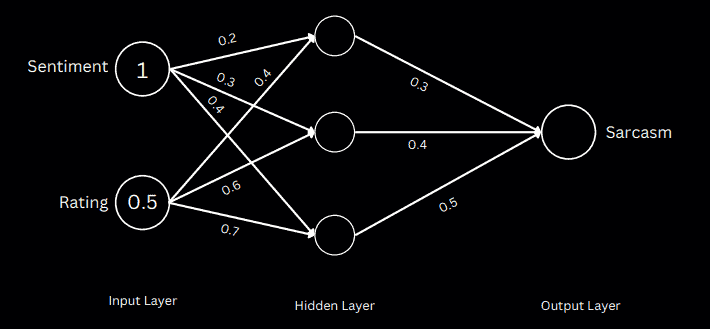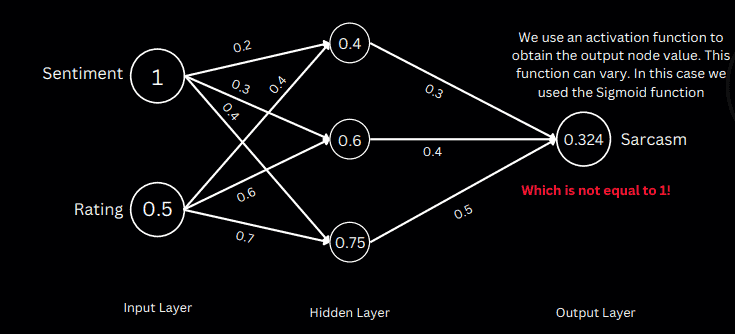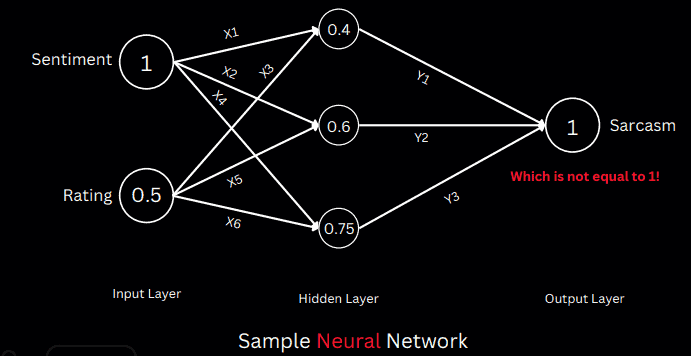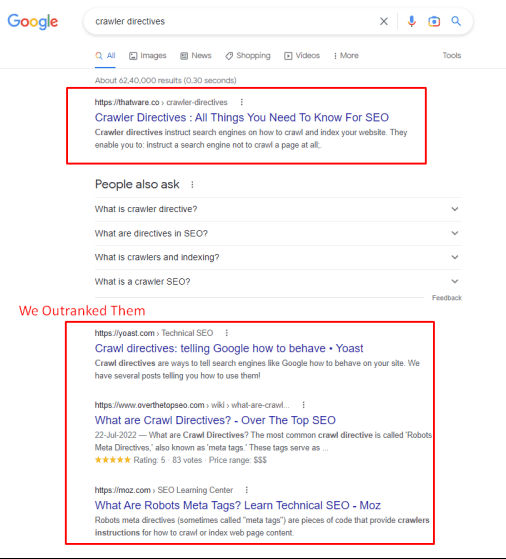Get a Customized Website SEO Audit and Online Marketing Strategy and Action
Hopfield networks serve as content-addressable (“associative”) memory systems. Hopfield networks also provide a model for understanding human memory. It is capable of storing and retrieving multiple memories. It is a fully interconnected neural network where each unit is connected to every other.

In SEO, we can check a particular search term and how it connects with other keywords. We can analyze this with the help of a co-occurrence matrix.
We can easily analyze how the focus keywords are connected with other key phrases. From that analysis, we can pick some meaningful keywords.
Let’s understand how an AI neural network works
Let’s train an AI to detect sarcasm!
Let’s look at these two examples of reviews:
# “I was tired of getting hit on by beautiful women. After I bought this jacket, problem solved!”
(Rating: 0.5/5)
# “Great burrito, now actually try cooking the beans.” (Rating: 1/5)
Ideally, if the sentiments of the reviews are positive ((“problemsolved”, “great”), but the ratings are low, that seems like a sign of sarcasm.
Now that we suspect there is some relationship between {sentiment, rating} and {sarcasm}, we list down some data points:
- Sentiment (+1 for positive, 0 for neutral, -1 for negative),
- Rating (0 to 5),
- Sarcasm (1 for Yes, 0 for No)
We end up with the following combinations:
(Sentiment, Rating, Sarcasm)
(1, 0.5, 1)
(1, 1, 1)
(1, 5, 0)
(-1, 4, 1)
(-1, 1, 0)
… and a few thousand more.
Now let’s find an actual relationship between Sentiment, Rating and Sarcasm. We draw layers as steps to move from input to output.

Sample Neural Network
The sample neural network tries to create a semantic relationship between sentiment
rating and sarcasm. Each Node is a part of the layer where we calculate certain values.
The edge is linked to carrying a certain weight. Initially, we assigned random weights.

Sample Neural Network
Let’s Try to Calculate the values of the Nodes of the middle layer by taking the sample event (1,0.5,1). We know the output has to be 1.
Node 1 =(1∗0.2)+(0.5∗0.4)=0.4
Node 2 =(1∗0.3)+(0.5∗0.6)=0.6
Node 3 =(1∗0.4)+(0.5∗0.7)=0.75
Finally the Value of Sarcasm = Sigmoid((0.4∗0.3)+ (0.6∗0.4)+(0.75∗0.5))=Sigmoid(0.735) = 0.324
Which is not equal to 1!

Ideally, Sarcasm can have values of 0 or 1 to make sense. Since we know the result has to be 1 for the given set of inputs. We need to change the weights.
The process is repeated several times, till we achieve a final set of values for the weightage of the links(X,Y), which leads to a value = 1 at the end.
Once this is achieved, we will have constructed an empirical estimation of the semantic relationship between sentiment, rating and sarcasm.
Most Neural Networks work similarly. The models only differ in the number of nodes, edges and layers and the activation function.
One of the most prominent neural networks is the Hopfield Network.
Calculating Semantic Score to uncover authoritative backlinks and content ideas
From the basic understanding of a neural network, we know the links’ weightage helps calculate semantic relevance between two or more entities.
So if we could calculate the semantic score of all SERP results against a particular search query, and determine authoritative link prospects that can boost our own search rankings.
By focusing our Link building efforts on those domains, we can boost our search rankings for our landing page against that particular query.
What we Did?
In our experiment, we wanted to rank for the term “crawler directives“
We took the urls of the top 10 Ranking pages in Google as well as our own blog. We inputed these urls and the search term into our own semantic score calculator.

The competitor URls seemed to carry more relevance (weights) to the search term.
We sampled many such urls and developed link-building prospects.
We also remodified the page content based on the analysis of the competitor pages.
The Result

The result is remarkable.
Not only we ranked first for our target keyword. We outranked some pretty tough competitors.

Thatware | Founder & CEO
Tuhin is recognized across the globe for his vision to revolutionize digital transformation industry with the help of cutting-edge technology. He won bronze for India at the Stevie Awards USA as well as winning the India Business Awards, India Technology Award, Top 100 influential tech leaders from Analytics Insights, Clutch Global Front runner in digital marketing, founder of the fastest growing company in Asia by The CEO Magazine and is a TEDx speaker and BrightonSEO speaker.

